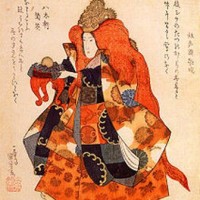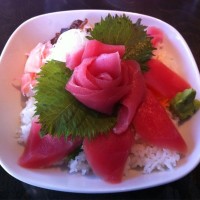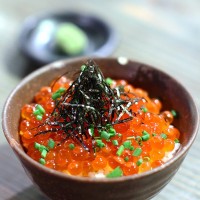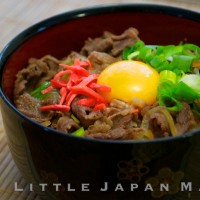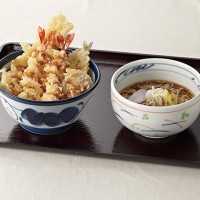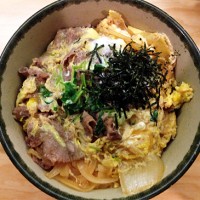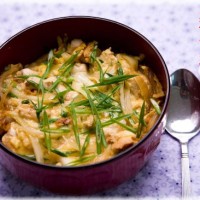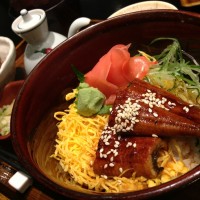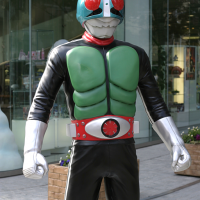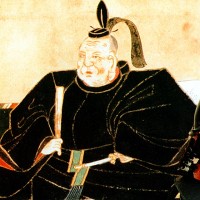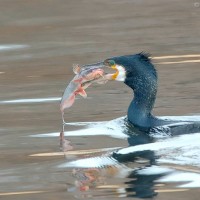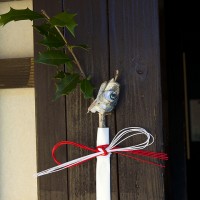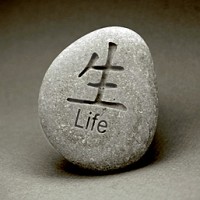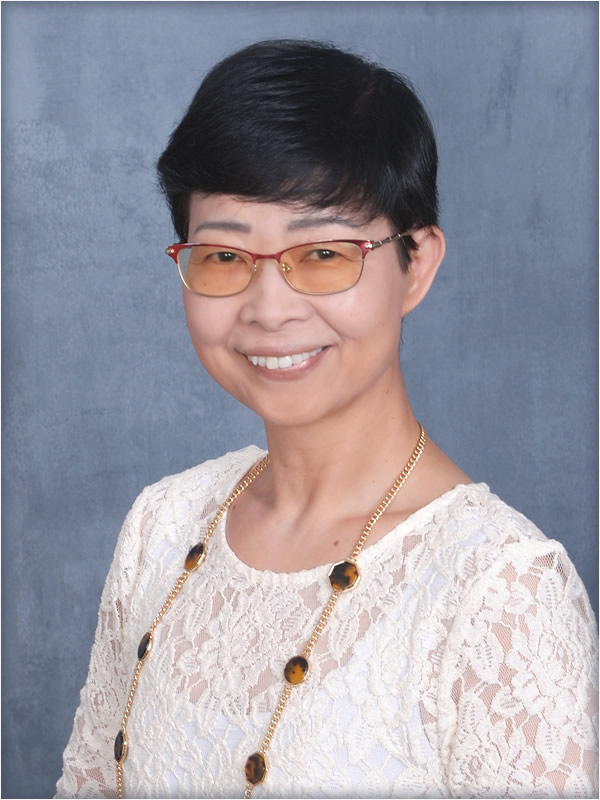Monthly Archives: August 2015
Friday: Kojiki (「乞食」ではなく『古事記』ですヨ!!) #24 – 1/3
08/09/2015 blog
Shiomitsutama and Shiofurutama One day Hoori-no Mikoto took a big sigh in the Sea Palace, where he had stayed for as long as 3 years. All of sudden, he remembered why he was there – He lost his brother’s fishing hook and had to find it! Toyotamabime saw her husband so depressed that she told her father, the Sea God, what she saw. She said, “I have never seen him so depressed. Do you have any idea why?” The concerned father-in-law asked his son-in-law, “My daughter has been very worried about you after she saw you so depressed this morning. Please tell me the reason you came here in the first …
Thursday: Japanese Food
08/07/2015 blog
Tekkadon/Maguro Donburi (Tekka Donburi/Tekkadon) “Tekka” means “Tetsu (Iron)” + “Ka (Fire)” though its pronunciation changes when they are combined. Maguro (Tuna) looks like a burnt iron (red), which is where the name “Tekka” comes from. “Tekkadon” and “Sakedon (Salmon Donburi)” sometimes come with sushi rice (vinegard rice) depending on regions or sushi bars. However, it is sashimi, not sushi, on the regular rice, not on vinegared rice after all. (Regular Tekkadon) (A Variety of Tekkadon) (You can make one at home as long as you get sashimi!)
Thursday: Japanese Food
08/07/2015 blog
Unidon/Ikuradon (Ikura Donburi/ Ikuradon) (Ikura Donburi/Ikuradon) (Uni Ikura Donburi/ Uni Ikuradon) If you love sushi and go a sushi bar so often, you know how expensive ($$$$$) “Uni (Sea Urchin)” and “Ikura (salmon roe)” are! Usually you see “JIKA (Seasonal Price)” in menu at sushi bars in Japan. You have to be prepare to pay a small fortune if you order “Uni” or “Ikura.” There is another expensive menu at Japanese sushi bars called “Kazunoko (herring roe),” but I have never seen “Kazunoko Don(buri)” before. Definitely each one of them is a delicacy!! The rice in the bowl is NOT vinegared unlike sushi (“Sushi” originally means “Su (Vinegar) shi (govern)”). In …
Thursday: Japanese Food
08/07/2015 blog
Gyudon (Gyudon) “Gyu (Beef)” + “Don” = “Gyudon.” Seasoned and cooked beef is over the rice in the bowl this time. This is one of the Japanese traditional menus, but it became a huge hit when a franchise came to Japanese fast food market. (“Yoshinoya” is the most popular franchise in “Gyudon” market in Japan.) (Ajinomoto created frozen Gyudon.) Since Yoshinoya established its “Gyudon” franchise, most Japanese think of “Gyudon” as “Gyudon from Yoshinoya!” Also, “Gyudon” is the food when you are in a hurry or to go cheap. Traditionally, the Japanese cooked “Gyudon” at home. I don’t know if it is still the case in Japan now, though… *https://en.wikipedia.org/wiki/Gy%C5%ABdon
Thursday: Japanese Food
08/07/2015 blog
Tendon/Tempura (Tendon and Noodle Combo) (Tendon “To Go” – Fast Food!) If you are here and reading this blog, you know a lot of Japanese food. Or, Japanese food is your favorite and you go to Japanese restaurants once in a while – maybe more often than going to restaurants which serve other countries’ cuisines. So, I assume you are familiar with the word – Tempra. Yes, mainly seafood is deepfried. “Shrimp Tempura” is most popular, no doubt! Now this deepfried shrimp and others are over the rice. That is called “Tendon.” The deepfried dish is served in many ways: (Tempura Teishoku or Combo menu) (Tempura Soba) (Tempura Udon) (Tenzaru …
Thursday: Japanese Food
08/07/2015 blog
Tanin Don(buri) (Tanin Donburi) Let’s review! As long as you see the word, “donburi,” that’s rice bowl, isn’t it? Now what does “tanin” mean? “Tanin” means “strangers.” In this case, the very strangers to each other are “beef (or some other kinds of meat)” and “eggs.” They are NOT related to each other, are they? That’s why it is called “Tanin Donburi.” Similar sauce used in “Oyako Donburi” is used when cooking “Tanin Donburi.” Just ingredients are different – They are strangers! Then, why do you cook “strangers” together? Kind of weird… See – in Japanese Kado (the art of flower arrangement) you are not supposed to mix up the …
Thursday: Japanese Food
08/07/2015 blog
Oyako Don(buri) (Oyako Donburi) This is the sequel menu of another kind of “Donburi.” OK. Now you know this is a rice bowl with something over the rice, don’t you? Yes, “Oyako” is over the rice. What, in the world, does “Oyako” mean? It means “parent” and “child” – chicken (parent) and eggs (child). Of course, not just that “oyako” is over the rice, but all other ingredients are along with “oyako.” (Basic Ingredients for Oyako Donburi) As stated in a column of “Unadon/Unagi Donburi,” chicken and eggs are boiled with other vegitables in special sauce and served with condiments different from those coming with Unadon/Unagi Donburi. Look at some …
Thursday: Japanese Food
08/07/2015 blog
Unagi Donburi/Unadon (Professionally Served Unadon/Unagi Donburi) When you see the sign which says “XXX Don” or “OOO Donburi,” you picture “XXX Rice Bowl” or “OOO Bowl” you can eat at Japanese restaurants or Japanese/Chinese fast food restaurants like Panda Express. Originally, “donburi” means “medium sized bowls” – think of a salad bowl with quite a depth. Usually, the Japanese serve rice in a deep bowl called donburi, over which you will see a lot of dishes – meat, eggs, fish, vegetables, and so on. Then, you call it “(whatever) Donburi.” So, today’s “whatever” is eels called “Unagi” in Japanese. That’s why it is called “Unagi Donburi” or “Unadon” in a …
Wednesday: Nihon-no Manga
08/06/2015 blog
Kamen Rider <Series> (The First Rider: After His Comeback) (The First 3 Riders) (A Big Franchise Over the Decades) “Kamen Rider” was originally written by Ishi(no)mori Shotaro, who is the author of “Cyborg 009” introduced last week, but later on the series became such a big franchise that Ishi(no)mori didn’t catch up with the popularity and he dropped the ball, which means all other characters and their episodes were written by other authors. It is said that Ishi(no)mori came up with the original Kamen, which means “Mask(ed),” Rider character from a grashopper or a locust. That’s why each rider’s mask always looks like a grashopper or locust no matter what …
Tuesday: Nihon-no Kotowaza
08/05/2015 blog
Omoni-wo Orosu (Tokugawa Ieyasu: https://en.wikipedia.org/wiki/Tokugawa_Ieyasu) [Vocaburary] Omoni: a heavy burden Orosu: unburden; be relieved of a burden; discharge a burden [Comment] No translation necessary for “Omoni-wo Orosu,” right? Look at the picture of Tokugawa Ieyasu (1543 – 1616) above. As you may know it, Ieyasu is the founder and first Shogun of Tokugawa Shogunate. Unlike his other counterparts – Oda Nobunaga (1534 – 1582) and Toyotomi Hideyoshi (1536 – 1598) – he came to the throne in his later life (He seized power at the age of 57!). His life tends to be depicted as “Patience.” Patience was everything in his life. Since he was a young boy, he was always with …
Tuesday: Nihon-no Kotowaza
08/05/2015 blog
U-no Mane-wo Suru Karasu (Cormorant) (Crow) [Vocaburary] U: a cormorant Mane-wo Suru: copy Karasu: a crow [Translation] People ruin themselves by trying to ape their betters.
Tuesday: Nihon-no Kotowaza
08/05/2015 blog
Iwashi-no Atama-mo Shinjin-kara [Vocaburary] Iwashi: sardines (considered as “nothing” or “no value”) Atama: head Shinjin: faith; belief; piety; devotion; reverence for God [Translation] Faith will move a mountain. / Anything can be deified. (Kanji of “Iwashi”)
Tuesday: Nihon-no Kotowaza
08/05/2015 blog
Inochi Atte-no Monodane [Vocaburary] Inochi: life Atte-no: on the condition that life sustains Monodane: the basis of all [Translation] Life must be the first consideration. / While there is life, there is hope.
Tuesday: Nihon-no Kotowaza
08/05/2015 blog
Ichinichi-no Kei-wa Asa (Soochoo)-ni Ari [Vocaburary] Ichinichi: a day Kei: a plan; a scheme Asa: morning Soochoo: early morning [Translation] The day’s plan should be made out early in the morning.
Tuesday: Nihon-no Kotowaza
08/05/2015 blog
Ichiji-ga Banji [Vocaburary] Ichiji: one thing Banji: everything; all things; all [Literal Translation] One thing is everything. [Translation] He that will steal a pin will steal a better thing. / This case serves as a criterion for all the rest.

